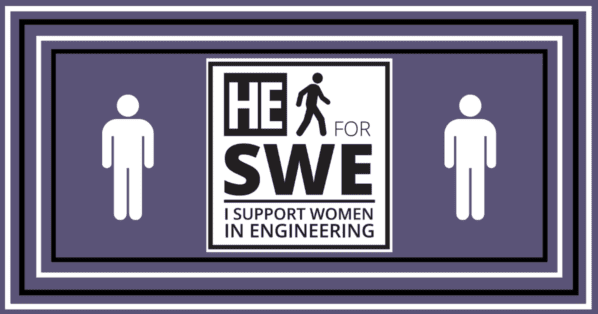By the SWENext Transitions Workgroup Committee
The transition to college is already nerve-wracking enough without moving to a new country in the process! If you’re a student looking to apply to and attend college in the USA, take a look at the tips below for some helpful hints.
When Applying for College
Consider These Factors When Choosing Your Major and College
With so many colleges and areas of study to choose from, be sure to think about these elements:
- Program cost
- Passion for work
- Job availability in the field
- Watch the SWENextTV episode on college considerations for more details.
Explore Our SWENextTV Episodes
We have created episodes on resumes and letters of recommendation, college essays and the Common App, and scholarships and financial aid for practical information to help you with these topics.
Check Out Our Collegiate Section Videos
Look through our playlist of collegiate section videos if you’re still undecided on where you want to apply!
SWE collegiate sections have made videos to showcase their universities, engineering departments, and SWE sections to SWENexters to help inform college application decisions.

Before Arriving on Campus
Make a Budget for Your Life in College
Here are some factors to include in your college student budget:
- Housing on or off-campus: In many cases, you’re likely to spend the first year in a college dorm. You will learn about more housing options in your first year to inform future decisions.
- Campus meal plans, grocery shopping and cooking, eating out, or a combination of those options.
- Traveling by public transport or by car: Check with your university to see if they provide public transit cards to students.
- Other personal spending habits
- Having a part-time job
Make Copies of Important Documents
It’s a good idea to have paper copies of your passport and other important documents in case of loss or damage, as well as electronic copies saved to your phone or computer. Have backup copies of your:
- Passport
- Flight documents
- Student visa
- Admission letter
- Health insurance
- Medical records
- Prescription
- Academic documents
- List of emergency contacts

After Arriving on Campus
Give Yourself Time to Figure Things Out
You’ll face some tough decisions when arriving on campus for the first time, including what to major in. If you’re not sure what college major to choose, don’t worry!
Choose a major that is comfortable for you – you always can change your major later (keeping in mind your major’s requirements for graduation).
Form New Relationships
Making friends is part of the college experience. One of the easiest ways to widen your social circle is to join student organizations and meet peers who share your interests.
You can also talk to the other students who live near you and hang out with classmates outside of class.
Learn How to Cope with Homesickness
It’s okay to feel homesick at times — in fact, it’s normal. Here are some ways to cope with homesickness in college:
- Attend student activities on campus and in your dorms.
- Stay in touch with family and friends back home.
- Join clubs and groups with other students in your position.
Explore Interests Outside the Classroom
There are so many ways to make friends, grow your learning, and explore your interests outside of the classroom:
- Make friends by joining clubs like an honor society, groups for students of color, or an intramural sports team.
- Attend an international student orientation. Most schools offer this program which fosters the skills necessary to succeed and highlights available resources to help you navigate any challenges ahead.
- Interested in engineering and STEM? Join your college’s SWE section if there is one! If not, you can think about starting one.
Find Out What Resources Are Available to You
Look for the following resources at your college to help you with the international transition:
- Academic advisors can help you choose courses and meet major requirements.
- Look for your school’s tutoring, academic success coaching, career counseling, and career center programs if you want to work and study.
- Some schools also offer physical and mental health services.
- Visit the international student advising office for services, immigration administration support, and on and off campus employment advising.
Communicate Openly with Your Roommate
Sharing a room with someone you’ve just met whose lifestyle may differ from yours and who may have a different cultural background can be difficult.
To prevent conflict, establish ground rules early. Find out your roommate’s schedule at the beginning of the semester and communicate frequently.

Develop Healthy Habits
A lack of sleep can result in lower grades. Aim to sleep 7 – 9 hours each night. Going to bed and waking up early can improve your productivity during the day.
Maintain a healthy diet, and try to exercise 5-6 times a week for both physical and mental health. Joining an active club is a great way to help with your motivation and meet friends!
Get Your Textbooks
Make sure you know how to get your textbooks before classes start. Your school may have copies in the school store, the school library may have copies, and there are many places to buy or rent textbooks online.
Use Your Time Wisely
Time management is key to achieving your educational goals. Follow these pieces of advice to help you work more efficiently and balance your time:
- Balance academic work and other responsibilities. Choose your courses wisely to avoid burnout.
- Avoid procrastination and stay organized to help you make the most of your limited time.
- Read provided syllabi and rubrics. Some professors may consider class participation when calculating your final grade, and some may provide office hours at certain times that you can utilize to ask questions, learn concepts, and more efficiently work through your homework.
Do What You Can to Stay Safe
Take precautions at on- or off-campus parties. Never accept drinks or substances from people you don’t trust, never leave your drink unattended, and try to travel in groups with your friends.
Develop Language Skills
Here are some tips to improve your language skills as an international student:
- A non-English speaking student should learn English from English instructors.
- Download a language app.
- Watch TV sitcoms.
- Make English your computer and phone’s default language.
- Make friends with students who can speak English.
- Carry a pocket dictionary with you.
Learn About the Area You Live In
Every college has a unique culture, environment, and region. Here are some helpful ways to get acquainted with your new college home:
- Research the social norms to avoid cultural misunderstandings.
- Have an open mindset and embrace diversity.
- Visit restaurants and other local attractions.
- Try out new food.
- Visit a park.
- Familiarize yourself with local laws. Remember any kind of infraction with the law can affect your legal status, so being aware in advance can avoid future problems.
Don’t Expect to Adjust to College Life Right Away
If you find yourself struggling to figure out how to deal with the transition to college, reach out to a student advisor, campus counselor, or faculty member for help.
These individuals can support you and help you create a rewarding and enriching experience as an international student.
Author
-

SWE Blog provides up-to-date information and news about the Society and how our members are making a difference every day. You’ll find stories about SWE members, engineering, technology, and other STEM-related topics.






